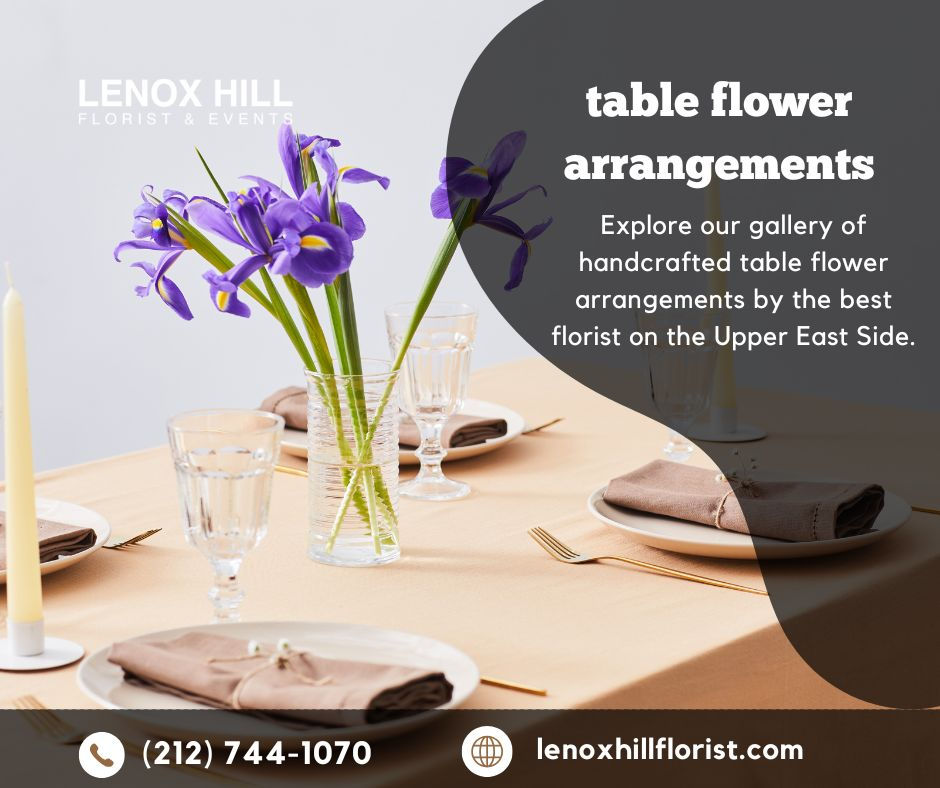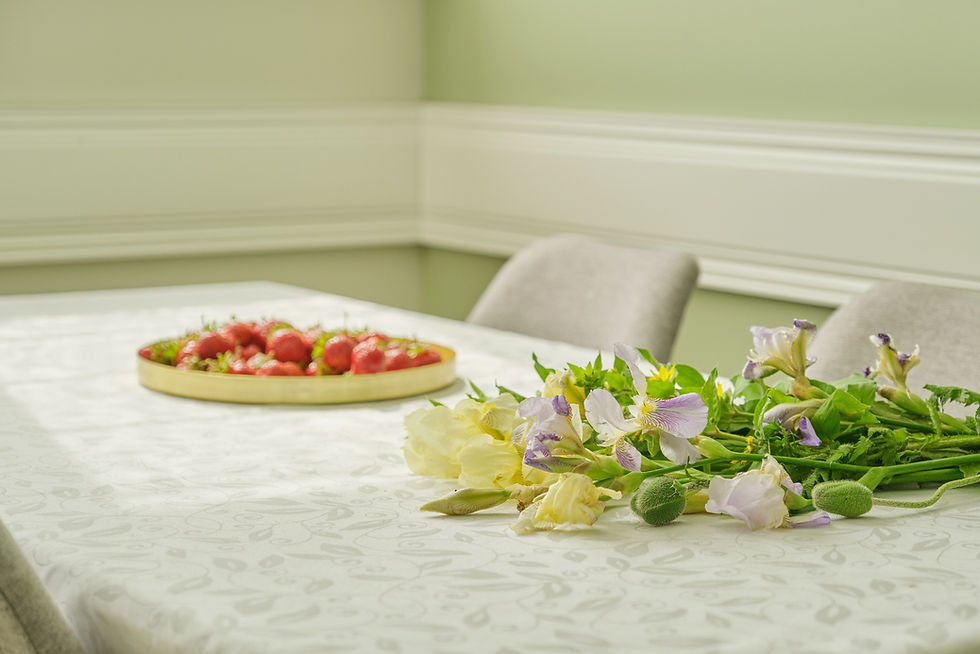How to Arrange Table Flowers Like a Professional?
- Speedy tanks
- Aug 1
- 4 min read
When done right, table flowers can completely transform your space—whether it’s for a formal dinner party, a casual brunch, or even just your everyday dining table. Floral arrangements don't just offer visual beauty; they create ambiance, bring nature indoors, and make guests feel genuinely welcome.

Why Table Flowers Matter
Before diving into the "how," let’s explore the "why." Why should you bother learning to arrange flowers for your table?
Atmosphere: Flowers instantly lift the mood of a room.
Occasions: They elevate everything from simple dinners to weddings.
Wellness: Studies show flowers reduce stress and boost creativity—great for athletes and busy professionals alike.
Style: They showcase your taste and add a touch of elegance to any space.
Step-by-Step Guide to Creating Stunning Table Flower Arrangements
1. Choose the Right Flowers
Your flower selection sets the entire tone. Start by considering:
Seasonal blooms (e.g., peonies in spring, dahlias in late summer)
Occasion (soft pastels for brunch, vibrant tropicals for celebrations)
Longevity (some flowers like chrysanthemums last longer than tulips)
Fragrance (keep scents mild for dining arrangements)
💡 Pro Tip: If you're unsure where to begin, visit the best florist Upper East Side to get expert advice on high-quality seasonal options.
2. Select a Suitable Container
Professional florists often start with the container or vase before choosing flowers. It affects:
Stability (make sure it's sturdy enough for your stems)
Proportion (flowers should be about 1.5 to 2 times the height of the container)
Style (rustic wooden boxes, elegant ceramic vases, minimalist glass bowls)
For formal occasions, opt for low, wide containers to keep sightlines clear across the table.
3. Prepare the Flowers
This step is where many people fall short. Proper prep ensures longer-lasting arrangements.
Remove any leaves below the water line.
Trim stems at a 45-degree angle under water for better absorption.
Let flowers sit in lukewarm water with floral food for 30–60 minutes before arranging.
4. Build a Foundation
Every beautiful table flower arrangement needs structure. Florists use one of the following:
Floral foam (for stable, fixed designs)
Flower frogs or chicken wire (more eco-friendly and reusable)
Grid tape across the top of the vase
This foundation holds the stems in place and helps with symmetry.
5. Start with Greenery
Greenery sets the base and gives the arrangement a natural shape. Use:
Eucalyptus
Ruscus
Ferns
Ivy
Place greenery in varying directions to add depth and width to the arrangement. Avoid overly dense foliage that can make the design look heavy.
6. Add Focal Flowers
Focal flowers are the stars of your arrangement. These are larger blooms like:
Peonies
Roses
Sunflowers
Orchids
Place them slightly off-center rather than symmetrically for a modern, organic look. Use odd numbers for better visual flow.
7. Fill In With Secondary and Accent Flowers
Secondary flowers fill the space around focal blooms. Think:
Spray roses
Ranunculus
Alstroemeria
Accent flowers add whimsy and detail:
Wax flowers
Baby’s breath
Craspedia (Billy Balls)
Distribute them evenly but avoid a crowded appearance.
8. Check Proportions and Balance
Step back and observe:
Does the height vary naturally?
Is it visually balanced from all angles?
Are the colors harmonious?
Rotate the arrangement while checking from each side, especially for round or centerpiece styles.
9. Add Finishing Touches
Florists often use extra touches to complete their arrangements:
Twigs or branches for height
Feathers or dried elements for texture
Berries or fruits for seasonal charm
Less is more—uses these sparingly to avoid overwhelming the flowers.
10. Maintain Your Arrangement
Make your flowers last by:
Changing water every 1–2 days
Re-trimming stems every 2–3 days
Keeping the arrangement away from heat, direct sunlight, and ripening fruit
Table Flower Arrangement Ideas by Occasion
Every day Dining
Low, narrow arrangement
Soft greens with 2–3 main flowers
Use a minimalist container
Dinner Party
Bold color palette
Mix of textures
Include fragrant blooms for ambiance
Athlete's Celebration
Strong stems like lilies or birds of paradise
Team or school colors
Add greenery with a sporty twist (e.g., eucalyptus "runners")
Corporate or Office Setting
Sleek vase, monochromatic tones
No strong fragrance
Clean, modern styling
Choosing the Right Florist on the Upper East Side
If you want to skip DIY or source top-tier blooms, look for the best florist Upper East Side by checking:
Google reviews and ratings
Specialties (events, weekly deliveries, high-end arrangements)
Delivery options and turnaround time
Floral design style (modern, traditional, eclectic)
A local expert can even guide you on flower care, best seasonal picks, and custom arrangements that match your room decor or theme.
Frequently Asked Questions (FAQs)
What flowers last the longest in table arrangements?
Carnations, chrysanthemums, alstroemeria, and orchids are among the longest-lasting flowers. With proper care, they can last over 7 days.
Can I use artificial flowers for table arrangements?
Yes, high-quality silk or dried flowers can work well, especially for long-term use or allergy-prone guests. Blend them with real greenery or accents to add realism.
How do I choose flowers that match my tableware?
Look at color tones—cool vs warm—and consider contrasts. For example, white dishes with blue flowers look clean and classic, while gold accents pair beautifully with blush or burgundy blooms.
Should table flowers be scented?
Mildly scented flowers are delicate, but avoid overpowering aromas, especially on dining tables. Strong scents can interfere with food enjoyment or cause discomfort to sensitive guests.
Where can I learn more about floral design?
Many florists offer workshops or online classes. YouTube, Skill share, and even your local best florist Upper East Side might offer in-person events or private coaching.
Final Thoughts
Arranging table flowers like a professional isn’t about following strict rules—it’s about combining creativity, balance, and a touch of nature. Whether you're planning a casual weekend brunch or curating a high-end dinner setting, learning how to create your table flower arrangements empowers you to design beautiful, intentional spaces.
And if you ever need guidance or premium blooms, the best florist Upper East Side is just a call away—ready to bring your floral vision to life.



Comments